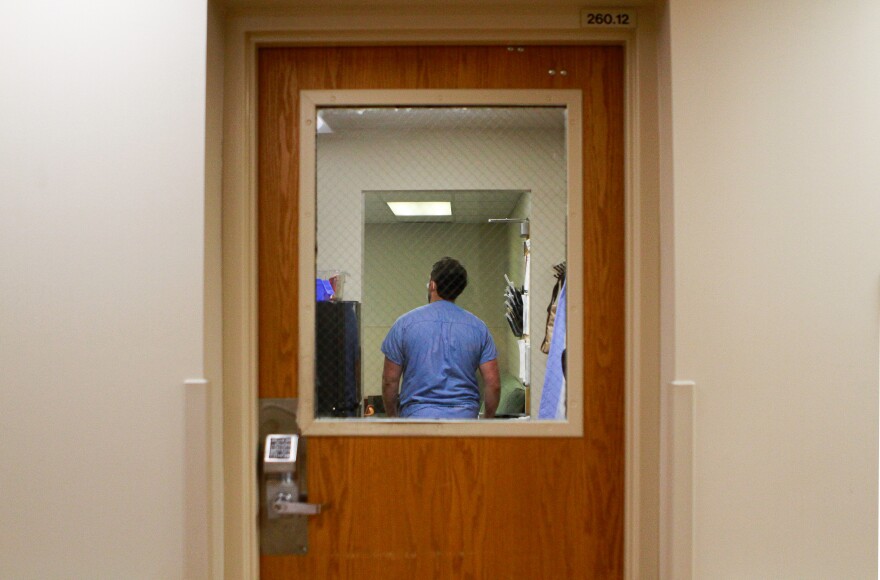At first glance, everything seems fairly normal when walking around Licking Memorial Hospital. Staff members chatting about travel plans in the lobby Starbucks. Physicians hanging out, watching HGTV in the break room while snacking on candy and other treats.
All signs that life continues to go on despite the hospital facing a spike in patients the last couple of weeks in a county with a 49.3% first-dose vaccination rate as of last week.
All signs that on the outside, might mask the frustrations of frontline doctors like Dr. Bassam Kret, a hospitalist who’s been treating COVID patients since the start of the pandemic. He said pressure’s been building on doctors and nurses as they’ve seen full ICU and COVID units.
“Especially the nurses, because one of the things we do for those patients is to try to prone them, which is laying them on their front, which helps their oxygenation," Kret said. "We are a mid-sized hospital, so we don’t have the capabilities of having the luxury of having expensive beds that turn patients by themselves.”

Heather Burkhart is the vice president of acute care services at Licking Memorial. She said the hospital is licensed for 226 beds. She added that on average, they might have up to 100 beds taken. But the last couple weeks, they’ve had upwards of 150. And the hospital’s COVID wing is often full and they have to find beds in other units.
But Burkhart said the number beds is not the problem.
“I think the bigger issue is not bed availability, it’s having the amount of staff that we need to take care of those patients if we had to do that," she said.
Staffing in the ICU has hit Licking Memorial hard. Burkhart said while they don’t have specific numbers, they’ve had nurses switch departments and even leave the bedside as a whole.
“After we started to see the census of COVID come back down, that's when people started kind of getting comfortable looking for other positions," she said. "In the height of it and in the beginning, I think people, they were all in and [saying], ‘We're going to take care of these patients,’ and you know, really stepping up to the challenge. But then we learned they were getting burned out.”

An American Medical Association national survey found almost half of healthcare workers reported burnout due to COVID-19.
And that’s something Kret said has been hard on everyone, especially at the beginning of the pandemic when there was no effective treatment for the coronavirus.
“You feel hopeless sometimes because you do everything — you do everything available, especially at the beginning of the pandemic," he said. "And you get to a point that’s sad, you’re seeing somebody dying in front of your eyes and you cannot do too much about it. Number two, they’re dying alone most of the time.”
But Kret said the fact there is an effective preventative measure now in the vaccine makes the hospital’s current situation just the more frustrating.
“Right now, knowing in advance that there is an effective vaccine, you’re always wondering in your mind why those patients are not getting the vaccine which could save their lives and other people’s lives too," he said.
Kret added that he often hears unvaccinated patients say they feel the vaccine was rushed or that it has many side effects. Some, he said, claim it does not work at all. And seeing these patients come in with COVID puts the pressure on doctors.
But despite everything going on, for a doctor like Kret who’s been at Licking Memorial for two decades, he still finds motivation to keep working.
“This is what I’ve done all my life, basically just taking care of patients," he said. "And this is one of those things I’m more comfortable taking care of COVID patients now than before.”





